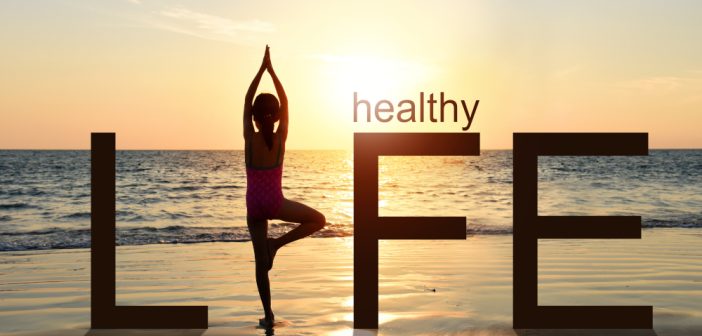Have you been wanting to start a new healthy habit but can’t seem to find the right time? How about summer?
An average summer lasts about 90 days—more than enough time to build a healthy habit. “On average, it takes more than 2 months before a new behavior becomes automatic — 66 days to be exact.,” said James Clear, author of Atomic Habits. And according to one study, how long it takes a new habit to form can vary widely depending on the behavior, the person, and the circumstances: anywhere from 18 days to 254 days to form a new habit.
With plenty of time, agreeable weather, and longer days, Summer is the perfect time to kickstart a new routine that sticks. To start, make sure the habits you choose are realistic for you. Then you need to set check-in points for yourself. Lastly, reward yourself! Each step is equally as important as the next to make lifelong changes to a healthy lifestyle.
Choose Realistic Habits
Many of us fall into the cycle of wanting to make a change to get healthier and then get sidetracked by something that comes up—like a vacation, a holiday, or simply a bad day. Instead, find small habits that can fit right into your busy summer schedule. For example, when you are running around from baseball games to the pool, make sure you are drinking plenty of water. This can be easy to prepare for by just having a couple of extra water bottles in your car.
Choosing small, realistic habits is critical for success. When you are picking a new habit to start, it may seem pointless and redundant. Over time, however, as you develop a couple of small habits, they start adding up to a big change. “When each task is so small it’s hard to skip it so there’s no need for willpower,” said Amardeep Parmar, host of Mindful & Driven. “The beauty of this is after some time it becomes a natural part of your daily routine so you’re acting in your best interests without even realizing it!”
Summer is a great time to start setting realistic goals because of all the opportunities warm weather brings. For example, you can start going on small hikes every week, take up swimming, grow a garden with healthy vegetables and fruit, or even go camping and enjoy some fresh air.
Set Check-in Points
While you might have already set a small habit that you want to form, it’s smart to break it up into parts to make sure you are on track to meet your end goal. You can consider these your check-in points. Set them before you start on your goal, and they’ll help you adjust your goal if needed. Set a small goal within your big goal, then set a date when you expect to complete the small goal by.
You can make these check-in points relevant to your life. For example, right before you go on your summer vacation, check in with how much water you have been able to drink every day, or by the Fourth of July, see how many hikes you have been able to go on.
Reward Yourself
Rewarding yourself can be an important detail of achieving your goal. It may seem like a silly task, but rewarding yourself gives you something to look forward to and changes the way you think. Rewarding yourself can be having your favorite dessert after a healthy meal or going to a new movie you’ve been wanting to see after a hike.
“By rewarding yourself in the moment, your brain elicits positive emotions, leading to the realization that your efforts result in a positive reward,” according to Tonyrobbins.com. “By doing this continuously, your brain will start to link pleasure to accomplishing the task or objective and move towards it in the future.”
While you are enjoying the warm weather this summer, make a goal to form new healthy habits. Make your new habits realistic by adding a few extra tasks to your daily routine, set check-in points to see your progress, and reward yourself to ultimately change how you think about accomplishments. You’ll find yourself building habits that last long into the fall, winter, and beyond!
A version of this article was published by The Daily Herald. It has been republished here with permission.




